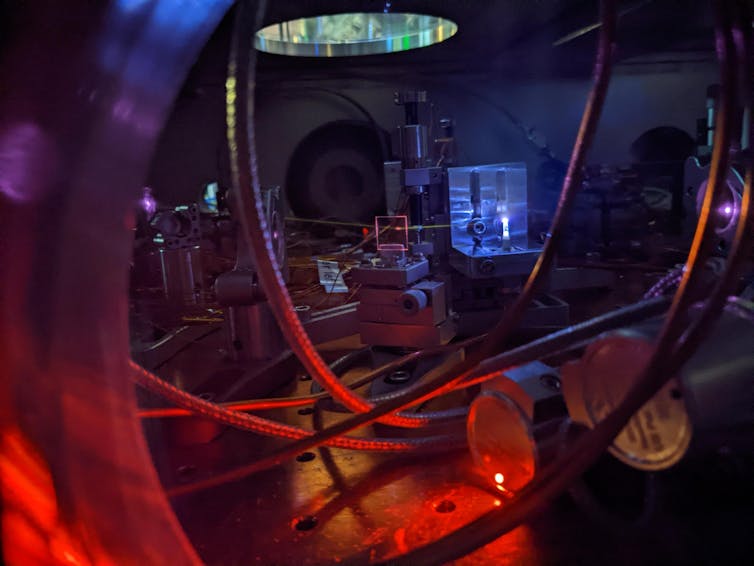
The memory devices fabricated using tantalum oxide on this chip can store data for both conventional memory and in-memory computing above 1,000°F. Credit: Brenda Ahearn, Michigan Engineering
Computer memory could one day withstand the blazing temperatures in fusion reactors, jet engines, geothermal wells and sweltering planets using a new solid-state memory device developed by a team of engineers led by the University of Michigan.
Unlike conventional silicon-based memory, the new device can store and rewrite information at temperatures over 1,100°F (600°C)—hotter than the surface of Venus and the melting temperature of lead. It was developed in collaboration with researchers at Sandia National Laboratory.
“It could enable electronic devices that didn’t exist for high-tempera...
Read More









Recent Comments